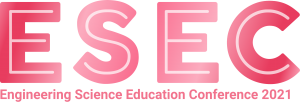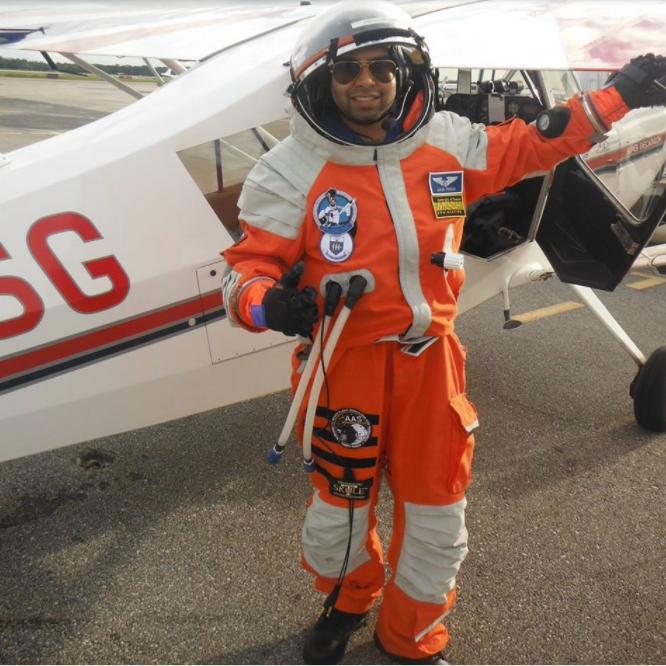To Educate, To Challenge, To Humble
Dr. Aaron H. Persad
Abstract
After convocation (0T5+PEY), we returned to the EngSci Office in Bahen Centre for the afterparty and filled out a survey by admins about our EngSci experience. Our answers would be provided to the new incoming EngSci cohort. One question was: “What is the purpose of EngSci?” I don’t recall my answer at the time, but I remember what my friend penned into the answer box: “To educate, to challenge, to humble.” Somehow those words really put my EngSci experience into perspective and stuck with me ever since. In this talk, I’ll provide examples of how education, challenges, and humbling moments helped me along my career and life. Space has always been a passion of mine, so I will be drawing examples from my research over the past 17 years about topics such as thermodynamics, bioastronautics, and microgravity sciences. I realize now that the question asked on the exit survey was really THE question we all need to answer: in ancient Greek the answer was captured in this word: Logos (/ˈlōɡōs/ or “the reason why”). It is my hope that this talk will inspire you to search for the Logos.
Speaker Biography
Dr. Aaron H. Persad is an EngSci 0T5+PEY. He pursued his B.A.Sc. (Biomedical, Prof. John E. Davies), M.Eng., M.A.Sc., Ph.D. (Prof. Charles Ward), and two postdocs (Prof. David Sinton) all at the University of Toronto (UT). He is now a Research Scientist in the Department of Mechanical Engineering at the Massachusetts Institute of Technology (MIT). His primary research at MIT investigates the size-separation of molecules using novel filters made of graphene with Angstrom-sized features for applications in healthcare, energy, and water purification. He is also the Director of Bioastronautics at the International Institute of Astronautical Sciences with the aim of preparing the next generation of scientists and engineers for careers in human spaceflight. Dr. Persad is Co-Founder and CTO of Mission: Space Food, the first commercial company addressing questions of nutrition in space.
Dr. Persad has extensive experience with human-in-the-loop testing for spaceflight. In 2019 he co-founded a new spacesuit research lab at the Canadian Space Agency headquarters for extravehicular activity (EVA) analog gravity-offset studies (COVID-19 has put a hold on the EVA lab activities for now). In 2015, he managed the first microgravity testing of a commercial intravehicular (IVA) spacesuit with Project PoSSUM, Final Frontier Design, and the National Research Council of Canada; since then, he has managed five other international reduced gravity flight campaigns to advance the Technology Readiness Level of IVA spacesuits and for NASA clients. He also served on MIT's Committee on the Use of Humans as Experimental Subjects.
Dr. Persad's other research activities include advancements in space sciences and technology. As a client working with UT capstone students, he led the development of Artemis EVA smart tools for surface exploration of the Moon (Prof. Tobin Filleter), built microgravity payloads for flight testing (Prof. Gabriele d'Eleuterio), and developed physical models of bone to validate mathematical models of how microgravity affects bone growth in space (Prof. Lidan You). Between 2007 and 2016, Dr. Persad represented Canada as a science team member in the European Space Agency's Microgravity Application Programme (MAP) on research payloads related to evaporation, condensation, and boiling. He designed and developed over 25 payloads that have flown aboard parabolic aircraft, stratospheric balloons, and the International Space Station. In 2017, he was awarded a Postdoctoral Fellowship (PDF) by the Natural Sciences and Engineering Research Council (NSERC) of Canada, ranking 2nd in Mechanical Engineering nation-wide, to pursue independent research at MIT.
Dr. Persad was also a Course Instructor at UT in the Mechanical and Industrial Engineering (MIE) department between 2009 and 2016. He taught capstone courses on Mechantronics System Design and Integration (MIE443), Engineering Communication (APS490, MIE490, MIE491), and two graduate courses: Classical Thermodynamics (MIE1101), Statistical Thermodynamics (MIE1107), and also served as a lecturer for Non-Equilibrium Thermodynamics (MIE1110). He teaches courses on Space Science, Reduced Gravity, and Space Robotics for the IIAS (BIO103, BIO104, EVA104, EVA105, OPS103). He volunteered as an assistant SCUBA diving instructor with the UT Hart House Underwater Club---be sure to check them out!
Dr. Persad has published several papers related to thermodynamics, space sciences, and spacesuits. Notable was his 2016 publication in Chemical Reviews (impact factor IF=54) in which he used statistical quantum mechanics and statistical rate theory (SRT) to develop an improved model of evaporation [Chem. Rev. 2016, 116, 14, 7727-7767], and it was the highest IF publication in the department up to that time. His doctoral thesis advancing SRT was ranked top by the MIE department in 2014 and shortlisted for a Governor General of Canada Gold medal. In 2017, he ranked in the Top 60 candidates in the Canadian Space Agency's Astronaut Recruitment Campaign.
Visit our ESEC 2021 Social Pages
Engineering Science Education Conference 2021
Last updated on Jan 23 2021 by ESEC Web Team

